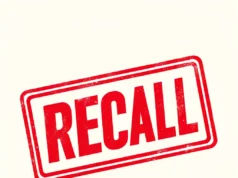
In the ever-evolving world of manufacturing, product recalls are an unfortunate reality that can pose serious financial and reputational risks for companies. This comprehensive exploration aims to illuminate the true cost of product recalls for manufacturers, taking into account both visible expenses and hidden implications.
Unraveling the Reality of Product Recalls
Product recalls are scenarios where manufacturers pull their products off the market, primarily due to safety concerns or quality issues. A recall could stem from an array of reasons – faulty parts, contamination, non-compliance with standards, or a myriad of other defects that potentially harm consumers or violate regulations. When such a situation arises, the cost incurred by the manufacturer is far-reaching and often more complex than it appears on the surface.
The Immediate and Hidden Financial Impact
From the moment a product is recalled, the financial implications begin to mount. This financial impact can be categorized into direct and indirect costs, each having significant repercussions for the manufacturer. The immediate, direct costs are typically easier to quantify, while the hidden, indirect costs, though harder to measure, can have a long-term impact on the company’s bottom line.
Direct Costs: The Immediate Financial Burden
Direct costs are the immediate, out-of-pocket expenses that manufacturers bear in the wake of a product recall. These include costs for notifying customers about the recall, shipping and handling of returned products, repairing or replacing faulty goods, and any penalties or legal fees associated with regulatory non-compliance. In severe cases, manufacturers may also need to invest in public relations campaigns to manage crisis communications and protect their brand image.
- The Scale of Notification and Product Retrieval: The notification process can be costly and complex, particularly for large-scale recalls. Manufacturers must reach out to distributors, retailers, and end consumers to inform them about the recall. This often involves media advertisements, mailed notices, emails, and sometimes even direct calls. Furthermore, the logistical cost of retrieving recalled products from consumers and retailers can be significant, involving shipping, handling, and storage expenses.
- Repair, Replacement, and Legal Costs: Once products are returned, they must be either repaired or replaced, adding to the direct financial burden. In some instances, manufacturers opt to refund customers to expedite the resolution process, which further drains resources. Additionally, manufacturers may face legal liabilities from regulatory authorities or consumers affected by the faulty product. These liabilities often result in hefty penalties or settlements, significantly increasing the overall cost of the recall.
Indirect Costs: The Long-Term Implications
Indirect costs are harder to quantify, but are often the more severe consequence of product recalls. These can include lost sales due to damaged reputation, reduced market share, diminished customer loyalty, and potential loss of key business partnerships. Over the long term, these factors can significantly impact a company’s profitability and even its survival.
- Lost Sales and Reduced Market Share: Recalled products must be pulled from shelves, resulting in immediate lost sales. Moreover, the negative publicity surrounding a recall often leads to decreased consumer trust, reducing future sales. In a competitive market, this can lead to a significant reduction in market share, which may take years to recover.
- Erosion of Brand Image and Customer Loyalty: Perhaps the most damaging impact of a product recall is the potential harm to a manufacturer’s brand image. Customers tend to associate the recalled product’s flaw with the manufacturer, leading to a loss of customer loyalty. Restoring a damaged reputation can be a costly and time-consuming process that requires significant investments in public relations and customer outreach.
- Loss of Business Partnerships: Product recalls can strain or even break relationships with distributors, retailers, and other business partners. These partners may choose to discontinue their association with the manufacturer, further exacerbating the financial and reputational loss.
Proactive Measures: Mitigating Recall Costs
In order to mitigate the potential costs of product recalls, manufacturers should adopt a proactive approach. This involves rigorous quality control, comprehensive recall planning, and prompt action when a problem is detected.
- Rigorous Quality Control: Ensuring product safety and integrity from the outset is the most effective way to prevent recalls. This means investing in rigorous quality control measures, including thorough product testing, ongoing quality audits, and stringent supplier vetting.
- Comprehensive Recall Planning: Even with strict quality control, recalls can still occur. Having a detailed recall plan in place can help to mitigate damages. This includes establishing clear roles and responsibilities, outlining communication strategies, and ensuring logistical readiness for product retrieval and replacement.
- Prompt Action: When a defect is detected, quick and decisive action is crucial. This includes notifying the necessary authorities, communicating transparently with the public, and taking steps to rectify the issue. Prompt action can help to limit the scope of the recall, minimize damages, and restore consumer trust more quickly.
Turning Challenges into Opportunities
Despite the numerous costs associated with product recalls, manufacturers can turn these events into opportunities for improvement. Through rigorous quality assurance, improved communication, and proactive risk management, manufacturers can not only reduce the likelihood of future recalls but also strengthen their reputation and relationship with consumers.
In conclusion, the cost of product recalls for manufacturers is a complex, multifaceted issue that goes beyond the obvious. By understanding the depths of these costs, manufacturers can be better prepared to manage recalls efficiently and protect their financial health in the process.







